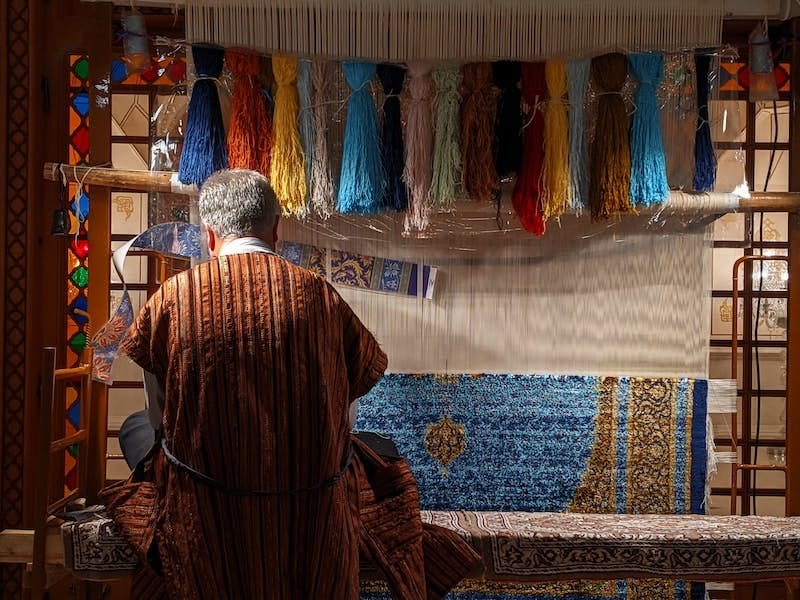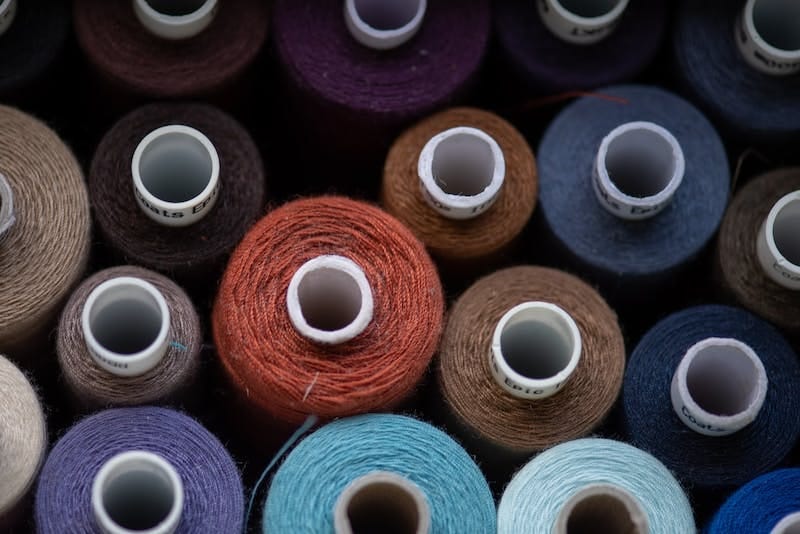The Human Fire 2.2 - Connecting the Threads of Our Lives
Embracing integration as a practice of deep connection.
Today's issue is the third in a series on the Art of Life exploring the elements of "possibility."
If there is a place where our education and our formation meet, it is in the practice of integration. Far from a simple combining of a handful of life's threads, integration intentionally weaves threads we've received, threads we've chosen, and threads we've loved into a beautiful tapestry. It is a radical practice of deep connection with ourselves and world, and with the life that lives in us.
In my conversations of late, I get the sense that many of us feel frayed. The threads of our lives are less like a coherent fabric and more like tattered strings dangling in the wind. It's as if the deepest parts of ourselves need a patient and attentive mending.
Whatever the causes of our fraying, integration - as a practice - consciously, deliberately strengthens those life threads within. It wraps them together to support the whole self. It experiments with combinations our education dissuades us from attempting, ultimately creating new garments in which we might clothe ourselves more easily, and more beautifully.
Oxygen
"No one sews a piece of new, unshrunk cloth on old clothes; otherwise, the patch tears away from it, the new from the old, and makes a worse tear. No one pours new wine into old leather wineskins; otherwise, the wine would burst the wineskins and the wine would be lost and the wineskins destroyed. But new wine is for new wineskins."
~ The Gospel according to Mark
I am many things, as are you. I am a husband, father, son, brother, and friend. I am a historian, a philosopher, a theologian, and an economist. I am a singer, a pianist, a guitarist, and a composer. I am all these things in ways unique to me, as you are all of your things unique to you. Each of us is all those things in ways that someone thinks we shouldn't be. And, I hope, you don't care about what that someone thinks anymore than I do. My being all these is itself a refutation of that someone's shrunken vision, as is your being.
Fuel
What if the most meaningful integration we might make, both as individuals and as a larger culture, was in that thing in our skulls - our brain? You know, that densest and most inscrutable object in the entire cosmos? Where our left and right hemispheres, distinct but in desperate need of cooperation, functioned as a seamless, powerful team instead of at odds with the whole purpose of having a brain in the first place?
That is, in laymen's terms, the upshot of Iain McGilchrist's thesis in his important book, The Master and the Emissary: The Divided Brain and the Making of the Western World. A neuroscientist and philosopher, McGilchrist uses neuro-biological research on the operations of the separate hemispheres to make a careful argument that, in Western culture at least, an over-emphasis and identification with the detail-oriented, process-obsessed left hemisphere - the "emissary" - has usurped the big-picture, life-giving leading of the right hemisphere - the "master."
In essence, the left hemisphere can't see the usefulness of what the right does. Only the right can integrate the full functioning of the left into itself, but it has to be the leader. Otherwise, the left as master results in, well, neurosis and psychopathy - a failed attempt at integration via exclusion.
If McGilchrist's thesis is on target, then true integration of anything - brains or otherwise - must include the vital aspects of each thing being connected. You cannot integrate by excising what you don't like or understand.
"You can't study philosophy if you want to be a historian." So I was told by a very learned, very odd Jesuit history professor of mine. This was after he spent ten years of Jesuit formation studying philosophy and theology. You hear all sorts of odd things like this in the academy, most of which are likely false, as was this statement. (As an aside, it was also hypocritical - the bulk of this professor's first book was a history of French philosophers.)
But it took me a long time to integrate my interest in philosophy with the practice of history. And the academy never helped me do that, even if I found examples of scholars who found a way to do in their own work.
As disciplines, philosophy and history both ask questions. But they ask different types of questions and have their own tools and methods to go about answering those questions. You can't answer a historical question with philosophy's tools, or vice versa. It's like trying to saw a board with a hammer.
But none of that means you can't integrate the two disciplines (or them with any other discipline). As an example, history got me interested in economics - the history of transitions between economic systems, and the real-world impacts that has had on human beings over time. Those systems have profound philosophical assumptions at their core, as well as ethical ramifications. The questions that most interest me are those that transgress neat disciplinary boundaries. And it turns out that to answer those, you just might have to be both a historian and a philosopher.
Heat
The poet Christian Wiman suggests that, for the integration of our lives to occur, "there must be a shattering experience." What we think we know, what concepts we hold dear, what narratives we cling to - integration happens after a shattering, a breaking, either from without or within. Do you agree? Can we integrate what we need to without that experience of brokenness?
We are complex creatures, with many interests and loves, some that don't seem to fit easily in one person, let alone into an integrated self. What are you trying to bring together in your life, as this year comes to end? What do you want to weave into a whole that seems to defy your efforts? I'd love to know.
Connecting
If you'd like to explore today's topic of integration a bit further, check out my essay "The First Steps in Connecting Our Inner and Outer Lives" for a deeper dive.
I've opened up some new slots in my coaching practice starting in January. If you'd like to explore working with me, simply book a discovery call.
If you'd like to help financially support my writing, you can give me a tip. In the coming weeks, I'll be offering a subscription plan for an ongoing way to regularly participate in my work and connect with other interesting readers like you.
Until next week, I'll see you down the path.
Chad





